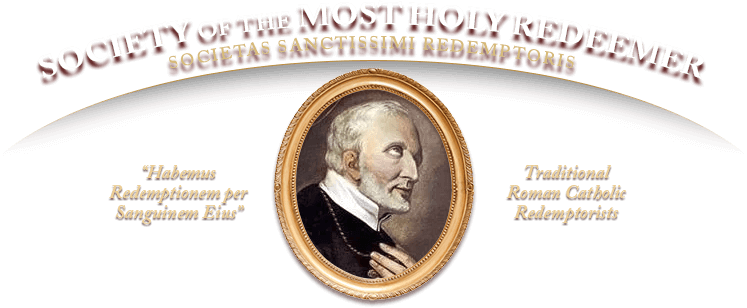Morning Meditation I: The Unhappy Life of the Sinner
In this life all men seek after peace. The merchant, the soldier, the man who goes to law – all labour with the hope of making a fortune and of thus finding peace by worldly lucre, by a more exalted post, by gaining the law-suit. But poor worldlings seek from the world the peace that the world cannot give. God alone can give peace, as the Holy Church proclaims in the following words: “Give to Thy servants that peace which the world cannot give.” No; the world, with all its goods, cannot content the heart of man; for he was created, not for them but for God alone: hence God alone can make him happy and content. Brute animals, that have been made for sensual delights, find peace in earthly goods: give to an ox a bundle of hay, and to a dog a piece of flesh, and they are content, they desire nothing more. But the soul, which has been created for no other end than to love God, and to live in union with Him, shall never be able to find peace or happiness in sensual enjoyments; God alone can make her perfectly content.
El Hijo de Dios dio el apelativo de necio al rico que, después de haber recogido una rica cosecha de sus campos, se dijo a sí mismo: Alma, tienes muchos bienes acumulados para muchos años; descansa, come, bebe y alégrate. – (Luke xii., 19). “Miserable fool!” says St. Basil, “have you the soul of a swine, of a brute, that you expect to make it happy by eating, drinking, or by sensual delights?” A man may be puffed up, but he cannot be satisfied, by the goods of this world. On the words of the Gospel, he aquí que hemos dejado todas las cosas – (Matt. xix., 27), St. Bernard writes, that he saw different classes of fools labouring under different species of folly. All had a great thirst for happiness: some were satiated with the goods of the earth, which is a figure of the avaricious; others with wind, the figure of the ambitious, who seek after empty honours: others seated round a furnace, swallowing the sparks that were thrown from it; these were the passionate and vindictive: others, in fine, drank putrid waters from a fetid lake: and these were the voluptuous and unchaste. Hence, turning to them the Saint exclaims: “O fools! Do you not see that these things increase, rather than diminish, your thirst!”
Ah, my God, what now remains of all the offences I have offered to Thee, but pains, bitterness, and merits for hell? I am not sorry for the pain and remorse which I now feel; on the contrary they console me, because they are the gift of Thy grace, and make me hope that, since Thou inspirest these sentiments, Thou wishest to pardon me. What displeases me is the pain I have given Thee, my Redeemer, Who has loved me so tenderly. I deserved, O my Lord, to be abandoned by Thee, but instead of abandoning me, I see that Thou dost offer me pardon, and that Thou art the first to ask for a reconciliation. O my Jesus, I wish to make peace with Thee and I desire Thy grace more than any earthly good.
Encontrará meditaciones y lecturas para otros días del año en el Meditaciones diarias de este sitio web.
